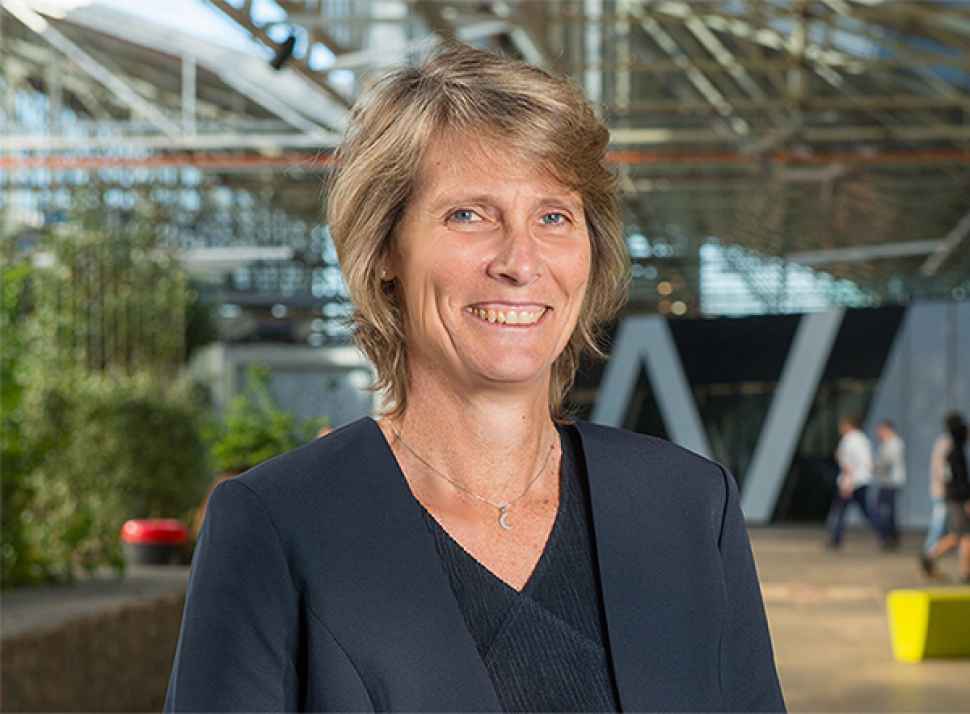
From blackboards to motherboards - the rapid rise of modern Engineering
An interview with Karen Reynolds, Professor of Biomedical Engineering.
Professor Karen Reynolds, Director of The Medical Device Research Institute, has been teaching at Flinders University since 1997, and has seen extraordinary development in the engineering course over the past 25 years.
“When I started here, we used blackboards and chalk and we were teaching primarily electronics and biomedical engineering,” says Professor Reynolds. “Now we teach a much broader range of courses - mechanical engineering, civil engineering and courses such as robotics.
“In the early days, our classes were quite small, particularly in the biomedical engineering field, but teaching methods have evolved to suit the technology, or perhaps the technology has evolved to suit the teaching methods “says Reynolds.
Favourite topics that Professor Reynolds has taught include biomedical instrumentation, and she fondly recalls taking students into Flinders Medical Centre, going into the theatres and clinics so they could see medical devices being used to save lives.
“An important topic that I teach now is about innovation in medical devices, outlining the commercial aspects of what has to be done to take a medical device through to market,” she says.
“There are many advantages to the more modern tools that we're using, especially through interactive ways of teaching – and some of the opportunities for the students to learn through online mechanisms are really good, particularly the fact they can go back over lectures to reinforce the parts that they don't immediately understand.
“The increasing numbers of students entering engineering is really good. I love the face-to-face interaction with students and seeing their skills develop. I love it when I can take them into real-life situations, moving beyond just sitting in a classroom and learning theoretically, so they actually see medical devices and instrumentation being used to change people’s lives for the better.
“We notice great change after we’ve sent our students off for work experience placements. They come back after about 20 weeks of work integrated learning and it seems as if they are three years older in terms of what they know.”
The diversity of what is now being taught in engineering degrees also excites Professor Reynolds, especially for how the subject connects with myriad areas of scientific learning and discovery.
“More people are getting involved in engineering without being engineers,” she says. “Things like artificial intelligence are becoming a significant part of what we do - and in the biomedical engineering area, there is increasing emphasis on consumer-focused devices, such as being able to measure heart rate or stress levels on your wristwatch.
“The application of what we can do in engineering is broadening – and that's only going to continue. The lines around what people perceive as being hardcore engineering will blur a little bit, and that presents a new world of opportunity.”
Find Your Fearless. Study Engineering.
![]()
Sturt Rd, Bedford Park
South Australia 5042
South Australia | Northern Territory
Global | Online
CRICOS Provider: 00114A TEQSA Provider ID: PRV12097 TEQSA category: Australian University








